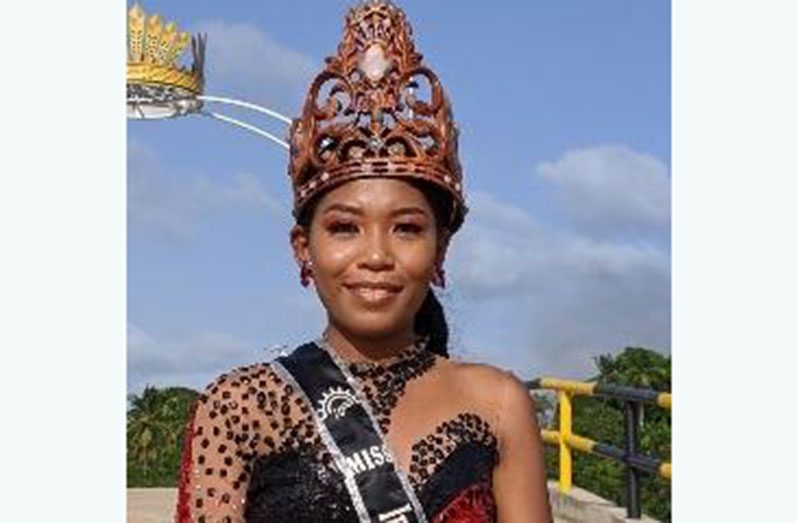FIVE Indigenous women from Guyana recently joined an Amazon-wide fellowship of Indigenous women who are protecting, managing, and restoring the Amazon Forest. Supported by the ‘Our Future Forests – Amazonia Verde’ project, the Guyanese fellows now join 19 other regional fellows, selected from 150 candidates across Bolivia, Brazil, Colombia, Ecuador, Guyana, Perú and Suriname. The fellowship programme seeks to foster their leadership efforts and recognise the women acting as important stewards of the Amazon.
Our Future Forests – Amazonia Verde is a Conservation International Project funded by the Government of France and working with the Co-coordinator of the Indigenous Organisations of the Amazon Basin (COICA). According to a Conservation International release, the launch of this part of the project — the new Women’s Fellowship Programme — is a major aspect of Conservation International’s contribution to gender equality in the Amazon region.
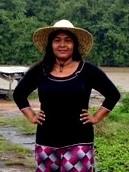
The Women’s Fellowship will last 12 months and involves execution of a variety of projects that support women and nature. The women all responded to an open call for this inaugural edition of the Fellowships Programme. They are Immaculata Casimero – a Wapichan from Aishalton Village Region Nine; Caroline Jacobs – a Makushi of Surama Village Region Nine; Esther Marslowe – a Lokono of Santa Cruz Village, Region One; Loretta Fiedtkou – a Lokono of Muritaro Village, Region 10; and Althea Harding – a Carib of Kwebana Village, Region One.
Immaculata Casimero will focus on supporting the role of Wapichan women in environmental protection in the South Rupununi. She will be working with the Wapichan Women’s Movement to raise their voices in encouraging the protection of Guyana’s headwaters in the region. The project will include the conduct of education and awareness workshops on environmental sustainability, stewardship and laws.
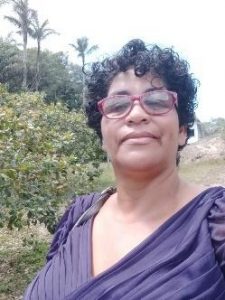
Caroline Jacobs will be documenting and recording traditional leadership knowledge by engaging a council of elders who include Indigenous women within four communities located in different ecosystems/geographic locations, that is, savannahs, forest, wetlands and mountains. The aim of documenting the traditional knowledge is to show community members, including youth, how these core values were applied and implemented years ago thus enabling the maintenance of a healthy environment up to today.
Esther Marslowe of the Lokono people, and from Santa Cruz village, Region One will be promoting the preservation of Indigenous culture and working on youth empowerment, especially for other Indigenous women. Loretta Fiedtkou will be highlighting the importance of replanting an area in the community with Crabwood trees, Hubadi trees and other endangered trees and remind people about the benefits of the old ways of farming and caring for land.
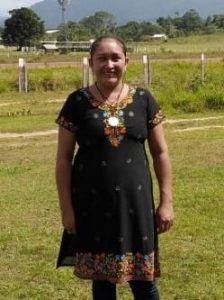
EMPOWERMENT SESSIONS
Althea Harding will host empowerment sessions with other Indigenous women in her community to build soft skills, improve literacy and develop handicraft making skills. She will also document the Carib language spoken in her village in an effort to keep the language alive.
The release noted that the projects being implemented by women in the other six Amazonian countries include community-based conservation efforts that draw on ancestral knowledge and focus on the restoration of forests using nature-based solutions, support to the sustainable management of bee populations, and generating sustainable finance for ongoing conservation efforts.
In the context of the ongoing COVID-19 pandemic, fellows have established communication virtually to advance the program despite limited physical contact. The programme is committed to online connectivity and other tools necessary for collaboration in this reality. All the women participating in the fellowship will be provided with networking and knowledge sharing opportunities.
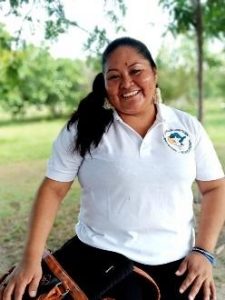
LEADERS, PROTECTORS, TRADITIONAL HEALERS
“Women embody a fundamental role in the structure of local communities and Indigenous peoples. Besides their irreplaceable role in birthing future generations, they are also often leaders, protectors, traditional healers, keepers of local medicines, restorers, matriarchs within their families and communities, and stewards of traditional knowledge. Supporting Indigenous women to improve their knowledge and financial means can enhance their leadership roles and contributions to ensuring security and conservation of indigenous ways of life, territories and forests they call home,” the release said. Connectivity is key to the fellowship, and, in the shadow of the COVID-19 pandemic, fellows have established communication virtually, advancing the programme despite limited physical contact. The programme is committed to connecting fellows with quality Internet and other tools necessary for collaboration, with the intention of formally starting fellowship contracts and programming in the coming months.
The broader project, Our Future Forests–Amazonia Verde is working with Indigenous Peoples and Local Communities (IPLCs) to help conserve up to 12 per cent of the Amazon — about 73 million hectares (180 million acres) — by 2025. The project directly contributes to the objectives of the Alliance for the Conservation of Rainforests, an open coalition led by France to promote the protection, restoration and sustainable management of rainforests worldwide. Since 1989, Conservation International has been working in Guyana focusing on species conservation and supporting efforts to establish a national system of protected areas as part of its broader mission to protect nature for the benefit of all. Globally, Conservation International works at every level from villages to Presidents and heads of corporations to find solutions and support the move towards a healthier, more sustainable development path. Through science, policy, and partnerships with countries, communities and companies, Conservation International, over the years, has helped support 1,200 protected areas and interventions across 77 countries, safeguarding more than 601 million hectares of land, marine and coastal areas.




.png)


